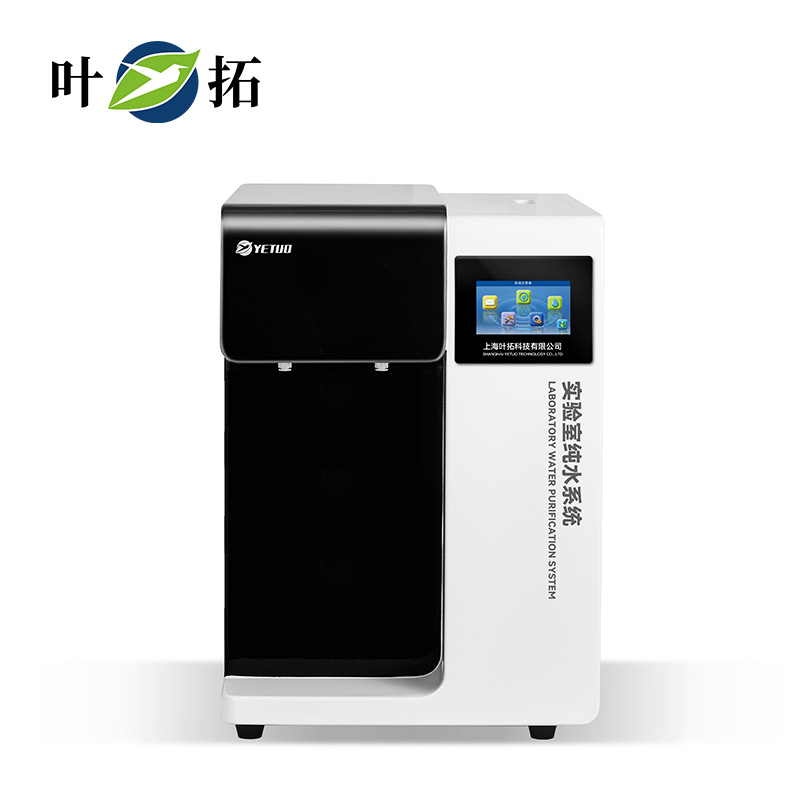Shanghai Yetuo Ultra Pure Water Machine and Distiller are two common types of water treatment equipment, which have some differences in principles, water quality, and applications:
Principle:
Ultra pure water machine: Ultra pure water machines use various processes and technologies, such as reverse osmosis, ion exchange, electrodeionization, etc., to remove ions, microorganisms, and organic substances from water, thereby obtaining high-purity water.
Distiller: Distillers heat water, evaporate it, and then condense the steam into liquid water to remove impurities and dissolved substances, thereby obtaining relatively pure water.
Water Quality:
Ultra pure water machine: Ultra pure water machines can produce high-purity water, typically reaching or approaching the 18.2 megaohm level (also known as resistivity or conductivity), removing almost all ions, microorganisms, and organic matter, and are used in experiments and processes that require extremely high water quality.
Distiller: Distillers can produce relatively pure water, but their purity is usually lower than that of ultrapure water machines. They can be used for daily applications such as general laboratory and glassware cleaning.
Equipment complexity:
Ultra pure water machine: Ultra pure water machines usually adopt complex processes such as multi-stage filtration, reverse osmosis, ion exchange, etc. The equipment is relatively complex and requires various filter elements, resin columns, etc. to ensure high purity of water quality.
Distiller: The equipment of a distilled water machine is relatively simple, mainly composed of heating elements, condensers, and collection bottles, and the operation is relatively easy.
Application scope:
Ultra pure water machine: Ultra pure water machines are mainly used in laboratories, pharmaceuticals, electronics industries, and other fields that require extremely high water quality. They are used for analysis, experiments, and processes that require high-purity water.
Distiller: Distillers are suitable for general applications in laboratories, medical institutions, and daily life, such as cleaning glassware and preparing reagents.
It is necessary to select suitable water treatment equipment based on specific needs and application scenarios to ensure the desired water quality.


 Alibaba Store
Alibaba Store Tmall Store
Tmall Store Jingdong Sstore
Jingdong Sstore







